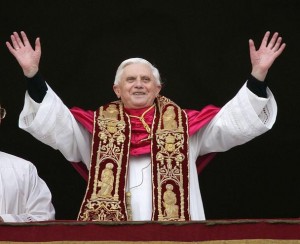CounterSpin
CounterSpin, New in Ceasefire - Tuesday, December 14, 2010 3:48 - 42 Comments
CounterSpin Why is the press unable to report protests accurately?

"Most of those who attended the tuition fee protest last Thursday and witnessed the subsequent news coverage need little convincing that there are serious structural problems with the reporting of important events in Britain," writes Ceasefire's Deputy Editor Musab Younis, in a major analysis of the press coverage of the protest.
CounterSpin, New in Ceasefire - Sunday, October 3, 2010 0:15 - 1 Comment
CounterSpin – Quality Control: Why ‘great’ (media) minds think alike
 From the “Muslim plot against the pope" that never was to “Red Ed” Miliband’s victory, Musab Younis shows, in this week's CounterSpin column, how the media industry systemically enforces conformity within its ranks. Indeed, a journalist’s route to success, Younis argues, is not merely a readiness to obey orders, but the hard-earned discipline not to need them at all.
From the “Muslim plot against the pope" that never was to “Red Ed” Miliband’s victory, Musab Younis shows, in this week's CounterSpin column, how the media industry systemically enforces conformity within its ranks. Indeed, a journalist’s route to success, Younis argues, is not merely a readiness to obey orders, but the hard-earned discipline not to need them at all.
CounterSpin, Politics - Thursday, September 23, 2010 11:15 - 3 Comments
CounterSpin – Unnatural Selection: It’s only news when we say it is.
 You probably know that a woman threw a cat in a bin in Coventry this month. You probably don't know that 75 people have been killed in Pakistan by US drones this month. This isn't anything to do with you or your interest in current affairs. As Musab Younis shows in this week's CounterSpin column, the importance of a news story has almost no bearing on the coverage it receives.
You probably know that a woman threw a cat in a bin in Coventry this month. You probably don't know that 75 people have been killed in Pakistan by US drones this month. This isn't anything to do with you or your interest in current affairs. As Musab Younis shows in this week's CounterSpin column, the importance of a news story has almost no bearing on the coverage it receives.
Arts & Culture, Columns, CounterSpin, Politics - Sunday, September 5, 2010 2:10 - 8 Comments
CounterSpin: Should we trust the newspaper?
 In the first of his 'Counterspin' series of columns, Ceasefire Deputy Editor Musab Younis examines the effect that increasingly concentrated media ownership is having on the reliability and accuracy of news reporting. He asks whether systematic distortion could be linked to the ownership structure of the press - and, if so, what prospects there are for a new popular, democratic media.
In the first of his 'Counterspin' series of columns, Ceasefire Deputy Editor Musab Younis examines the effect that increasingly concentrated media ownership is having on the reliability and accuracy of news reporting. He asks whether systematic distortion could be linked to the ownership structure of the press - and, if so, what prospects there are for a new popular, democratic media.

